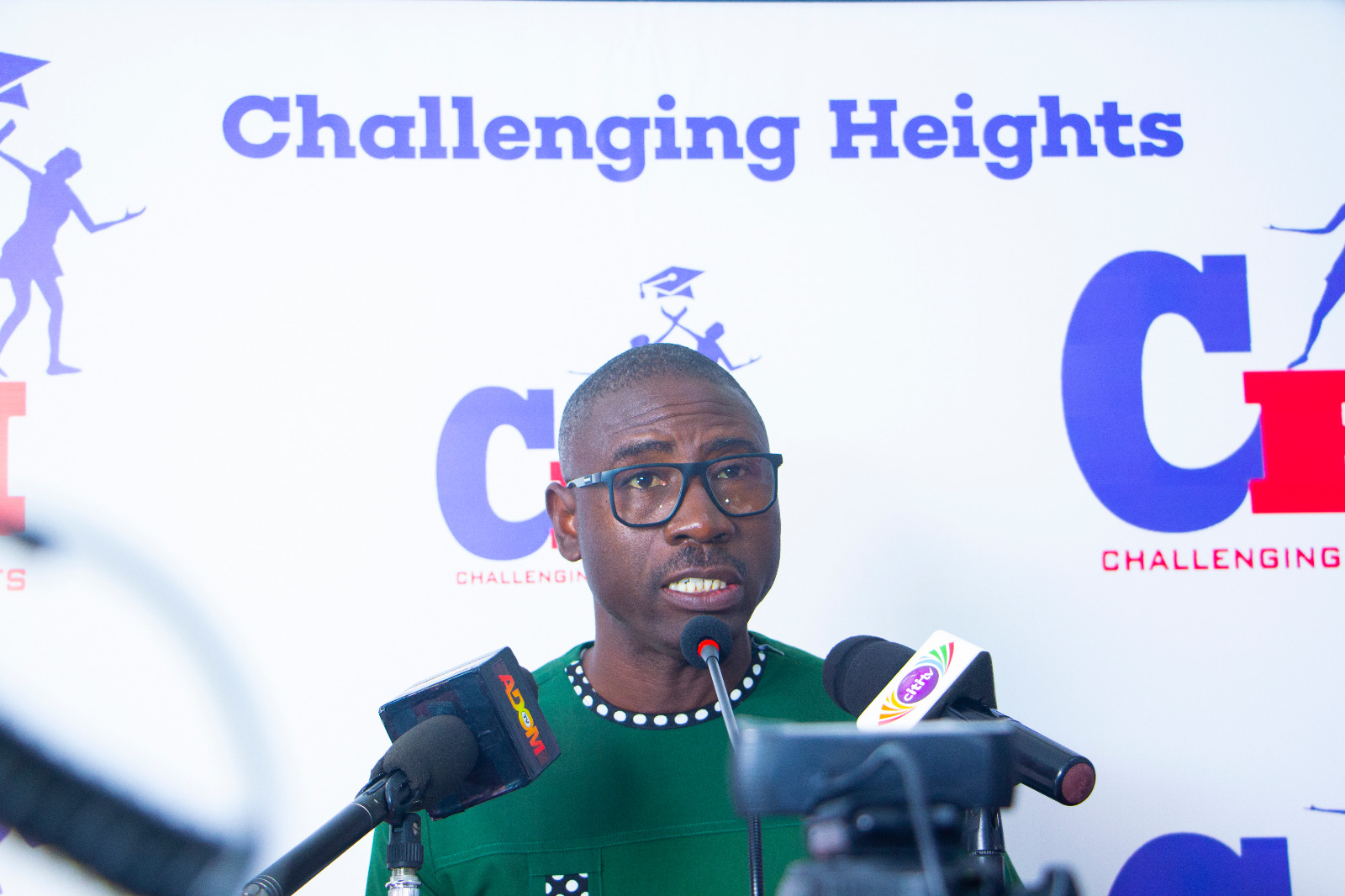Govt failing in modern day slavery fight - Global Slavery Index
CHALLENGING HEIGHTS LAUNCHES A NEW WALK FREE GLOBAL REPORT THAT SHOWS GOVERNMENTS ARE FAILING IN THEIR RESPONSIBILITY TO PROTECT THEIR PEOPLE FROM MODERN SLAVERY
Challenging Heights launches the Global Slavery Index (GSI) 2023 on behalf of its partner, Walk Free on Wednesday, May 24. Walk Free is an Australia-based international human rights group working to accelerate the end of all forms of modern slavery. Walk Free is the creator of the Global Slavery Index, the world's most comprehensive data set on modern slavery. The Global Slavery Index is used to mobilize powerful forces for change against these human rights abuses. Challenging Heights, which has been a leading Ghanaian antislavery organization, has been a key Africa partner of Walk Free in the last one decade.
The 2023 GSI report estimates 50 million people were living in modern slavery on any given day in 2021, throughout the 160 countries that were covered by the research. The figure represents an increase of 10million people since 2016. Of the 50million, 28million people were found in forced labor, while 22 million were in forced marriages. Children formed 12million of the total number of people found in slavery.
Africa had the fourth highest prevalence among the five regions of the world at any given day, with an estimated 7 million adults and children living in modern slavery, representing 5.2 people for every thousand persons. More than 3.1 million Africans were found to be in forced marriages, while more than 3.8 million people were found to be in forced labor across Africa.
The countries with the highest prevalence of modern slavery in Africa are Eritrea (9% of the population), Mauritania (3.2% of the population), and South Sudan (1% of the population). The prevalence rate of slavery in Ghana is 0.3%, with Mauritius recording the least prevalence rate at 0.2%.
Africa has the highest vulnerability to modern slavery of all regions and is home to the four most vulnerable countries: The report found 100% levels of vulnerability in South Sudan, and 98% in Somalia and Central African Republic. The vulnerability score in Ghana was 45%, while it was lowest in Mauritius (20%). Common to the most vulnerable countries are issues such as conflict, political instability, mass displacement, and poverty. The impacts of COVID-19 have compounded risk of modern slavery across the region.
There are several products such as gold, cocoa, fish, coffee, garments, which are at risk of modern slavery, according to the report. Over US$468billion of imports are goods such as electronics ($243.6billion), garments ($147.9billion), palm oil ($19.7billion), solar panels ($14.8billion), and textiles ($12.7billion) leading the pack of products at risk of modern slavery into G20 member countries alone.
African job seekers misled by traffickers with false promises are subjected to forced labor abroad, such as in the Gulf states. Children are also exploited in their pursuit of education. For example, under the confiage (trust) system in Togo, children from rural areas are sent to cities to complete their education and live with relatives, who may force them into domestic servitude. Nigerian girls seeking employment as domestic helpers to help pay for schooling are also subjected to domestic servitude. In Senegal, talibe (student, seeker) children in Quranic schools are forced to beg.
In Africa, forced marriage particularly impacts women and girls. One in every 300 females in the region was in a forced marriage. In the aftermath of the COVID-19 pandemic, reports of child marriages increased in Sudan, Egypt, and parts of the Democratic Republic of the Congo (DRC).
Women and girls living in conflict zones also experience forced and child marriage, including as a negative coping mechanism by families to protect them from further violence by fighters who abduct, marry, and exploit women and girls as domestic and sexual slaves. Forced commercial sexual exploitation of women and girls is used as a weapon of war by both state and non-state groups, reportedly in the Central African Republic, the DRC, Somalia, South Sudan, Sudan, and by both parties to the civil war in Ethiopia’s Tigray region.
While Ghana is not among the worst modern slavery affected countries, worst forms of child labor in the Lake Volta areas which is affecting over 20,000 children, remains one of the darkest spots in Ghana’s modern history.
Current actions of governments are not enough. Nigeria, by far, leads with regards to its slavery response rate (54%), followed by South Africa (53%), Rwanda (50%), with Libya (10%) and Eritrea (5%) at the bottom of the government response score card. Ghana scored 45% in its response rate to modern slavery over the reporting period.
Governments need to immediately move from intention to effective action, in addressing modern slavery. Governments in Africa must ensure support services are provided to all survivors of modern slavery – men, women and children- and that these support services are appropriately resourced. Governments must also strengthen social protections, such as birth registration, access to education, unemployment insurance, universal health care and sick leave.
The G20 countries whose over $468billion annual product imports are at risk of modern slavery must take immediate and decisive action, to address modern slavery in their supply chains.
African countries must take urgent steps to pass supply chain due diligence laws, to not only protect the rights of workers, but also to protect its international business relations.
Ghana must demonstrate commitment and take decisive action to address the plight of the over 20,000 child trafficking victims on Lake Volta.
End.
James Kofi Annan
(President, Challenging Heights)
